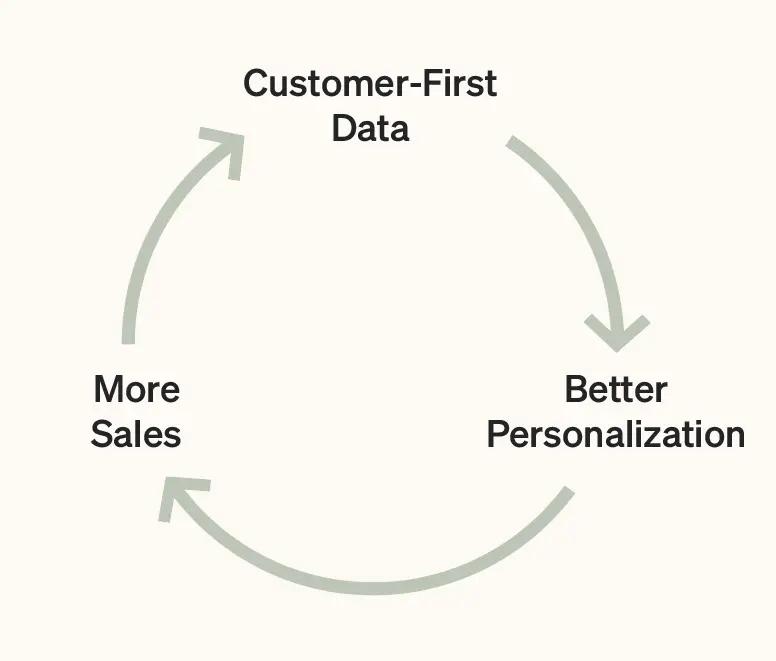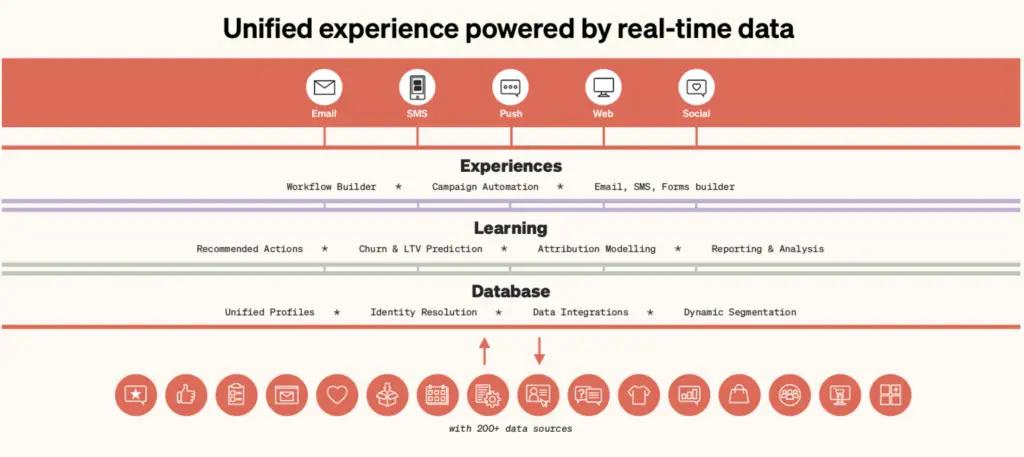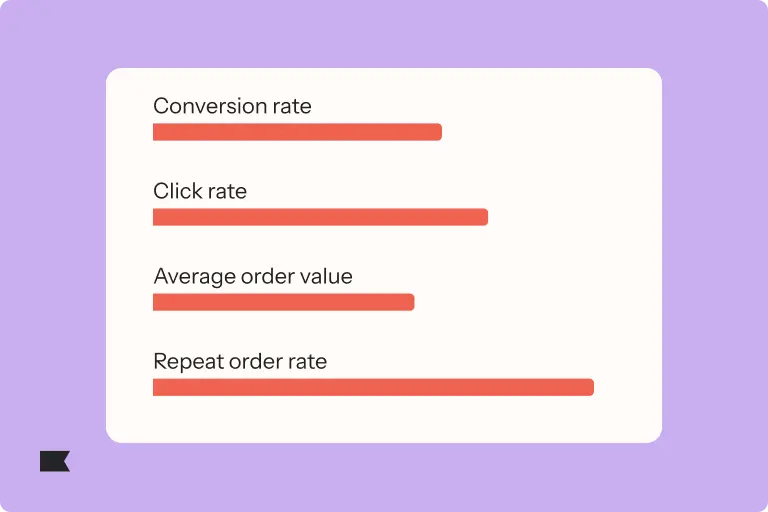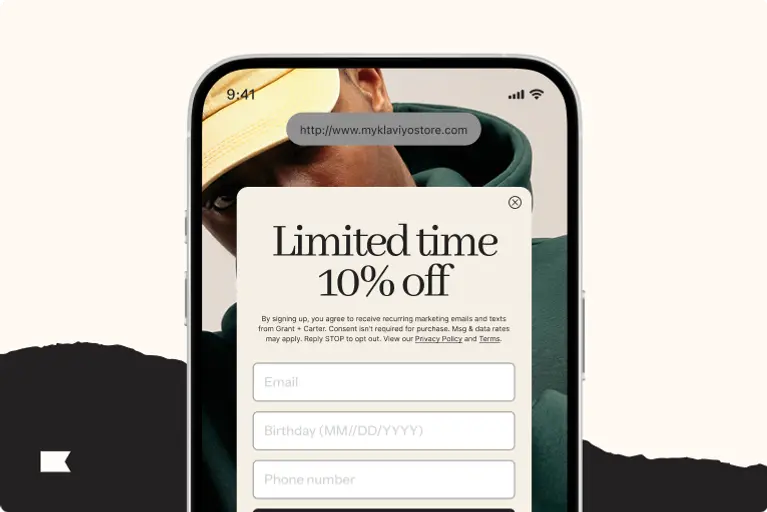Data and marketing are inextricably linked.
Marketers translate data into customer experiences, and then evaluate those strategies with more data.
But marketers who rely too heavily on third-party data face a lose-lose situation: inaccurate, expensive targeting or personalization that creeps customers out.
“We have to move away from the creepy data collection that has been used in the past with third-party cookies,” says Jacques Prothon, CEO and founder of Odicci, an ecommerce quiz software.
Fortunately, third-party data isn’t a prerequisite to making money, and we found data from five top UK brands to prove that using your owned data can lead to impressive business growth—to the tune of up to 20x conversion rates.

Learn more in the complete guide.Download now
Three key customer-first personalization takeaways
Your audience, the data they give you, and the experiences you create for them are at the heart of customer-first personalization. Full stop.
1. Customer-First Data™ is the backbone of better personalization
Customer-First Data is information that’s sourced directly from a prospective customer, website visitor, or a customer. It’s made up of:
- Personal detailsthat someone proactively gives you
- Tracked behaviorsfrom the actions someone takes on your owned channels, like emails and website

Personal details can be information like their email address, phone number, or responses to a quiz that asks about product preferences. Tracked behaviors are data points like which products they browsed on your site or which link they clicked in your email.
The data that we glean, such as products viewed and how often, helps to drive engaged customers who have landed on our website along their customer journey and convert to make a purchase.Helen Rankin, founder of Cheeky Wipes
Because this data is directly between you and your prospective customer, no third-party channel can make you pay for it or restrict your access to it. So while tech giants play the game of “Who can make advertising more expensive and less effective?”—your data and marketing tactics stay safe.
2. Effective personalization starts with automation
You probably already know that automated messages—the emails and texts that go to customers who have taken a specific action on your site, like adding something to their cart—are inherently powerful because they’re personalized based on someone’s actions.
But you can take your automated messages a step further with customer-first personalization at scale.
Group your audience into smaller groups and deliver more personalized messages that are more likely to resonate and convert.
Average conversion rate
2.2%
The average welcome email series converts 2.2% of recipients
Customer-First Data conversion rate
39%
In the case of Wilkinsons Sword, the welcome series yielded a purchase rate of 39%
Customer-First boosted conversion
x20
Customer-First data boosted conversion rate by almost twenty-times the average
In the guide, you’ll learn how five brands, including Wilkinson Sword, use Customer-First Data in automations and across channels to drive results that blow the industry averages out of the water.
3. Data is only as good as the experience you activate
Collecting data means you’ll need a place or a system to store it. By centralizing your data, the Klaviyo customer platform prepares you to build better customer relationships and grow sales.
Plus, integrating your entire tech stack—like your ecommerce platform, loyalty program, reviews platform, onsite personalization tool, and more—with your customer platform helps you to build comprehensive user profiles to hyper-personalize the customer experience.

Download the guide to learn more
Cookies might be going away, but personalization is here to stay.
“As we continue to see innovation in the ecommerce space, personalization is only going to become more commonplace as a strategy for brands to attract and retain customers,” says Chloé Pascal, global head of marketing at Nosto.
Learn the cutting-edge strategies for personalization that survives the privacy-first web.Download now



